Malaysia, a south-east Asian country, is known for its beautiful beaches, amazing food, and rich culture.
The country is situated on the Malay Peninsula and the island of Borneo.
The country is exceptionally diverse in race, culture, and religion.
The ex-pat community living in Malaysia is very diverse and comes from all walks of life and all corners of the globe.
Many ex-pats, nomads, and remote workers wonder: is it worth moving to Malaysia?
In this article, we review the top advantages and disadvantages of moving to Malaysia.
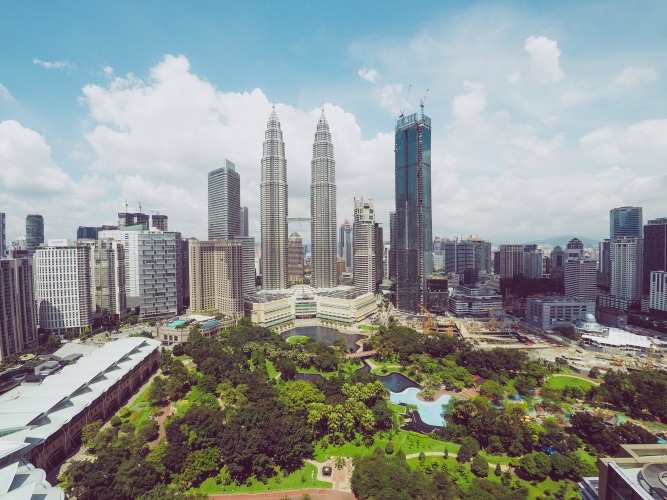
Contents
Pros of Living in Malaysia
1. Cost of living
Living in Malaysia is exceptionally affordable if you are earning British pounds or American Dollars.
The currency itself in Malaysia isn’t very strong, which means that the conversion rate is high when you pay in dollars or pounds. Very, very high!
It is the cost of living that attracts many foreigners to the shores of Malaysia and the quality of life that is attainable as a result.
For example, for $900, you can live in a high-end gated community with all the amenities you would come to expect from such an establishment.
A couple could live comfortably on $2,500 a month and a single person could easily get by on $1,000 per month.
For those earning foreign currency, life in Malaysia is affordable and not stressful at all.
To put this further into perspective, the cost of living in Malaysia is approximately 51% lower than in the US.
2. Healthcare
Malaysia has a two-tier healthcare system.
This includes government-run universal healthcare which runs concurrently with private healthcare.
Ex-pats are not required to have healthcare.
They can opt to use any hospital of their choice and pay out of pocket for healthcare services.
Many neighboring countries have come to Malaysia for years to access high-quality, affordable healthcare.
Most of the doctors in Malaysia attend schools in the US, Uk, or Australia, and all of these doctors speak English.
In addition, all of the doctors in Malaysia are familiar with and incorporate western standards of healthcare.
The most impressive part about healthcare in Malaysia is that, unlike other first-world countries, where you’d have to wait months to see a specialist, in Malaysia, you just show up at the hospital, take a number, and wait in line.
Prescription medication comes at a fraction of the cost compared to the United States.
In addition, like most of the healthcare industry, candidates who work in this branch of the healthcare industry are well-versed in all prescription medication.
3. Delicious food
Malaysian food is inspired by three cultures: Malay, Indian, and Chinese.
The infusion of culture, spice, and fresh ingredients from these cultures produce some of the most exquisite dishes you will find on the planet.
The most prominent dish in Malaysia is Nasi Lemak.
It is, essentially, rice steamed in coconut milk and pandan leaves and then layered with half of a boiled egg, anchovies, cucumber, and fried peanuts.
After the base is established, you can layer it with just about anything.
Dishes are vibrant, brimming with flavor, rich, spicy, and succulent.
4. English is widely spoken
One of the things that most ex-pats find challenging about moving to another country is the language barrier.
That won’t be an issue in Malaysia.
English is a common language spoken by most people in Malaysia, from shop owners to healthcare professionals and police.
You won’t find it difficult to adapt to the culture with regard to communication.
Most of the road signs are also printed in English, which makes driving that much easier.
However, like most foreign countries, the further you move out of the metropolitan cities and into the rural areas, the less English is spoken.
You may find it slightly more challenging to converse with locals in English in rural areas.
5. Relaxed
There’s a key difference in the way that Malaysians choose to spend their time, both at work and in terms of leisure, compared to Americans.
In most western countries, the emphasis is on being and remaining productive, and most westerners find themselves caught up in the rat race with no easy way to get out.
The Malaysian lifestyle is more laid back with much of the focus being on happiness and achieving happiness.
As such, you’ll find that more time is spent on leisure activities outdoors, like going to the beach, going for a picnic, or going on a hike, as opposed to spending countless hours at the office.
The great weather for most of the year contributes to achieving this goal and you’ll notice that there is a lot less stress here.
6. Friendly Malaysians
You won’t struggle to make friends when you first arrive.
That’s because most Malaysians are very friendly and hospitality is engrained in their culture.
The stress levels are considerably lower in Malaysia, due to great healthcare, good education, good jobs, and an overall good standard of living.
Overall, the population seems happy and content, and this translates to a friendly, helpful, and courteous attitude among the locals.
7. Public transport is inexpensive
Firstly, the country has a developed public transportation system.
Getting from point A to point B is rarely a problem.
The transportation system is very comprehensive and also very easy to use.
The transportation system includes buses, trains, boats, ferries, taxis both short and long distances, as well as airlines.
But it’s not just the fact that public transportation is developed, it’s also the fact that it’s so very inexpensive.
It’s safe to say that you don’t necessarily need to own a vehicle if you live in one of the larger, more metropolitan cities.
8. Excellent location
Malaysia is positioned in a location that allows travelers quick and easy access to other east-Asian countries.
This is a major bonus if you like traveling.
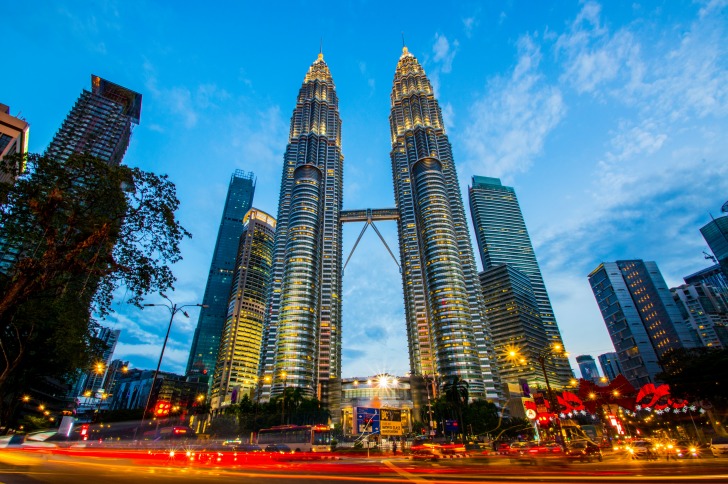
Cons of Living in Malaysia
1. High cost of imported goods
Malaysia has a high import tax rate imposed on all foreign goods coming into the country.
All imports into Malaysia are subject to Sales & Service Tax (SST).
This rate can fluctuate between five and ten percent, depending on what you are importing.
For example, you can expect to pay substantially more for electronics, vehicles, and branded clothing.
Imported cars are especially expensive and have hefty tax bills associated with them.
Malaysia is well-known around the world for having the highest taxes on cars.
2. Air pollution
Air pollution is a concern in Malaysia.
The country is put on the index scale at moderately polluted status.
Much like other countries in Asia, Malaysia suffers from air pollution.
It’s more prominent in larger cities like Kuala Lumpur and Penang.
It’s not uncommon to see a large heavy cloud of smog hanging over these cities.
Air pollution may not seem like such a big concern, but if you take into consideration the effects that this can have on your overall health, you may want to reconsider moving to the country.
Poor air quality has been linked to chronic obstructive pulmonary disease, stroke, lung cancer, ischaemic heart disease, and pneumonia, to mention a few.
There are several factors that contribute to the poor air quality in Malaysia, including car emissions and manufacturing.
The country has made efforts to improve its air quality, but it’s still a far way off from meeting the World Health Organization standards.
3. Extreme weather
The weather is both an advantage and a disadvantage.
The country has a tropical climate.
This means that from June through August, you can expect approximately 16 days of rain.
In addition, this means that Malaysia is subjected to monsoons.
And, while the monsoon itself may not be such a significant threat, it is the thunderstorms that accompany it that pose the risk.
4. Bad drivers
Unfortunately, many Malaysians have contributed to the country having a bad reputation for driving.
You’ll find that driving on the roads can be quite a challenge as a lot of Malaysians tend to veer over the lines in the road.
Congestion on the roads makes matters much worse.
In fact, there are approximately 92 cars per kilometer of the roadway. That’s quite intense.
In addition, Malaysia was voted as being the 8th worst country in the world to drive for stress-related reasons.
The fatality rate in terms of driving didn’t paint a great picture either.
According to the World Health Organization’s data report, there were approximately 22.76 fatalities per 100,000 drivers on the road.
5. Driving on the left side
This is a big one if you come from a country where you are used to driving on the right side of the road.
This gets some getting used to.
There are a few road rules that differ from western countries and it may be wise to familiarize yourself with driving on the other side of the road first, in order to avoid any nasty accidents.
6. Lack of nightlife
Malaysia has a strong affiliation with the Muslim religion as many Malaysians are Muslim.
What this means is that the drinking culture that most westerners enjoy and are accustomed to is absent here.
There is nightlife, just not the same as in the US.
There are bars in the bigger cities, and drinking isn’t banned at all, but you’re going to struggle to find a liquor store, and when you do, you’ll have to dig deep into your pockets, as alcohol is heavily taxed in Malaysia.
7. Property
Purchasing property isn’t really much of a problem in Malaysia if you are a foreigner.
But flipping properties, on the other hand, can be more challenging than it needs to be.
That’s because the paperwork is a slow and tedious process that involves state and federal law.
When you purchase a property or piece of land, it’s best to be sure before signing on the dotted line.
Because selling may take a while.
8. Purchasing property
While it is possible to purchase property in Malaysia, foreigners may not purchase property that is less than $250,000.
And, if the property is on Malay-reserved land, then you won’t be able to purchase it as a foreigner.
Pros and Cons of Living in Malaysia – Summary Table
| Pros of Living in Malaysia | Cons of Living in Malaysia |
|---|---|
| 1. Cost of living | 1. High cost of imported goods |
| 2. Healthcare | 2. Air pollution |
| 3. Delicious food | 3. Extreme weather |
| 4. English is widely spoken | 4. Bad drivers |
| 5. Relaxed | 5. Driving on the left side |
| 6. Friendly Malaysians | 6. Lack of nightlife |
| 7. Public transport is inexpensive | 7. Property |
| 8. Excellent location | 8. Purchasing property |
Malaysia Safety Overview
READ THE FULL REPORT: Malaysia Safety Review
Safety Index:
- OVERALL RISK: LOW
- TRANSPORT & TAXIS RISK: LOW
- PICKPOCKETS RISK: MEDIUM
- NATURAL DISASTERS RISK: MEDIUM
- MUGGING RISK: LOW
- TERRORISM RISK: MEDIUM
- SCAMS RISK: MEDIUM
- WOMEN TRAVELERS RISK: LOW
Frequently Asked Questions
What is Malaysia best known for
The country is widely known for its beautiful landscapes, pristine beaches, and outstanding food.
Is Malaysia a friendly country?
Yes.
The locals are very hospitable.
What is the most popular dish in Malaysia?
Nasi lemak.
It is the unofficial national dish of the country.
What is the most visited place in Malaysia?
The capital is the most popular tourist destination: Kuala Lumpur.
Does Malaysia have a king and queen?
Yes.
The country practices Parliamentary Democracy with Constitutional Monarchy.
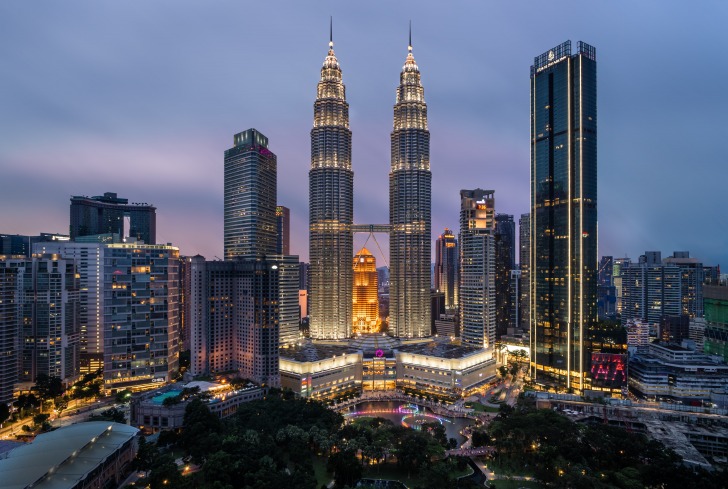


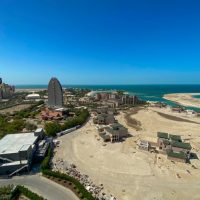


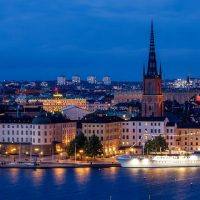





I dont think terrorism risk is high in malaysia. We have not had any terrorist attack small or large for ages.
Terrorising the innocents of the lgbt community.
Casting judgement on those they deem below them, which is not okay. That is arrogance.
LGBT!!! That’s not terrorising. Don’t play with words man. They don’t want it because they care their society. I know it’s hard for you to get it, just try!
if we want to go Malaysia what should we do we are from pakistan
LGBT is poisonous to society. It’s ok to be Homosexual in your private life (In my opinion – Muslims have their own beliefs due to their faith) but to organize a movement around it and spread it is bad for society.
There is a documentary called “Europa – The Last Battle” which explains how Western societies have been manipulated into division with Feminism, LGBT, Agetated Race relations, and misinformation spread by mainstream media. They’ve convinced the West all of these things are good. But the West is in decline and our population gets smaller every year. All of these things are contributing.
Question where is the USA Military Bases ?? With Hospital ECT